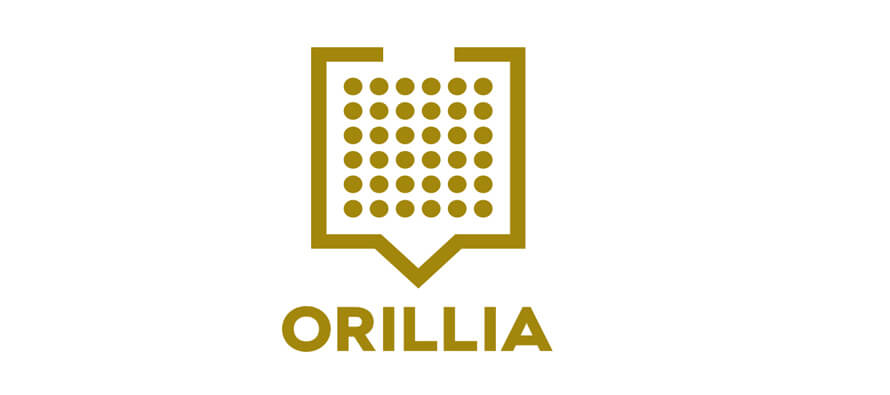
 Filip Roose and his Belgium Company Orillia, have been working to spread the gospel about accepting Bitcoin by installing Bitcoin ATMs in Belgium. The company has plans to expand in the near future to Europe, Latin and North America. Roose talked with CoinJournal about Bitcoin ATMs and their place in the industry as well as the persistent speculation that Bitcoin is on the way to failure because of recent price drops.
Filip Roose and his Belgium Company Orillia, have been working to spread the gospel about accepting Bitcoin by installing Bitcoin ATMs in Belgium. The company has plans to expand in the near future to Europe, Latin and North America. Roose talked with CoinJournal about Bitcoin ATMs and their place in the industry as well as the persistent speculation that Bitcoin is on the way to failure because of recent price drops.
CoinJournal: Filip, your company placed the first Bitcoin ATM in Belgium last year. Can you tell us what was involved in that placement?
Roose: First of all, we researched the best machines on the market today. We wanted the best one-way machine available for our customers. We believe that it is still too early in the development for them to give the most advantages for our clients. We want to have as many people accept Bitcoin as possible and this means ease of use. And also, because you are installing what amounts to a small bank, there are many government rules that must be complied with. We found our first client, GameSwap in Ghent, through Bitcoin Meetups.
CoinJournal: Your BATMs are priced significantly lower than most on the market. How can you stay competitive with other companies with such low prices?
Roose: I think other companies will have to find a way to compete with us, not the other way around. Robocoin for instance sells for nearly 10 times more than our company. But they probably had to put a lot of money into Research and Development. Our developers simply used technologies that had been around before cryptocurrencies. These guys have long experience in designing casino machines and know a great deal about security, fake fiat money, vandalism, etc.
When we bought our first device at General Bytes we contacted designers that could make it better. This is one of the reasons that we initially chose General Bytes. Their machines are so flexible, especially the software that allowed our designers to upgrade them quickly and keep pace with a rapidly evolving cryptocurrency industry.
Nevertheless, there are other machines/developers of Bitcoin ATMs and we all believe that there are very capable people behind them. But we chose the one that fit our business model which is all about stability, flexibility and security. I do not think it’s really the time to compete with other companies. Instead, at this early stage, we need to be working together to change the world.
CoinJournal: There are more than 65,000 businesses now accepting Bitcoin. Is installing a bitcoin ATM appropriate for most businesses, even small businesses such as coffee shops and florists?
Roose: Maybe it is better to look at this from the customers perspective. If many businesses accept Bitcoin they will need to buy their Bitcoin from somewhere. This means that currently it is best to put ATMs in places that have one or more merchants that are accepting Bitcoin. We look for places that have good opening hours, public access and a good physical location. This encourages other businesses in the area to begin accepting Bitcoin as well.
Belgians really like using digital money such as debit cards and credit cards. The problem is that the POS terminals and ATMs for this are very expensive. Well out of range for small businesses such as trendy night clubs, shops or restaurants. They also end up paying the credit card companies a percentage of their profits. When they accept Bitcoin and install one of our BATMs these problems are eliminated. We also try to put our machines in areas frequented by students because they have not yet been placed in the mindset of the banks and are open to new ideas.
CoinJournal: What are some of the benefits to a small business if they place a Bitcoin ATM on their premises?
Roose: We all know how the Bitcoin community works. Once the word gets out that a merchant is accepting Bitcoin they all scramble to take advantage of it. We are all evangelists for Bitcoin. This means that once they begin accepting Bitcoin they will immediately begin to see new customers, people who were not using their businesses previously. The second advantage is that Bitcoin is spending a lot of time in the media. This means that people in the area will be curious and begin asking questions if the merchant advertises that they accept Bitcoin. Finally, if a business has an ATM at their premises they have made it very easy for the customer.
CoinJournal: Your company is located in Belgium. Have you placed ATMs in other countries, and if so, which ones?
Roose: We have not yet placed our machines anywhere except Belgium but we are working on several projects. We have contacts throughout Europe and currently have two potential projects in Latin America and another in New York, in Manhattan. We are concentrating on areas that can benefit both locals and tourists. Carrying a lot of cash, or even credit cards, can be dangerous in many areas. This is another way that crypto can come to the rescue.
CoinJournal: The European Union has been mostly silent about Bitcoin regulations but Paul Koster; President of the Netherlands Stockholders Association recently recommended banning Bitcoin because it was too risky. What do you think of Koster’s request?
Roose: Mathias Kroner, CEO of Fidor Germany, once said: “You will not be able to explain Bitcoin to banker…because they are bankers”. I think we should have a good discussion with Paul over some Belgian beers because he is obviously looking at Bitcoin from the wrong angle, he is too afraid of something new, or simply does not understand the concept. Yes, Bitcoin is risky, but they still sell and are still worth many times their value less than two years ago.
CoinJournal: The price of Bitcoin has been falling recently. How has this affected your business? Have orders remained stable or are they dropping off?
Roose: No, not at all. The reason is simple: Our machine is a one-way so we do not see the effects of things like panic sales. We have actually seen an increase in the number of transactions from our machines. This might be because while the price is dropping, acceptance and use is growing. Where one sees a panic, others see opportunities.
CoinJournal: How hard is it for a merchant to begin accepting Bitcoin and what are the benefits?
Roose: There are a number of apps and solutions like BitPay and the Dutch BitKassa if the merchant does not want to begin accepting Bitcoins as Bitcoin. This makes it possible to do the actual set-up in less than 30 minutes with zero costs.
CoinJournal: In your experience, is public interest in Bitcoin in Europe rising or falling?
Roose: Definitely rising, no doubt about that. It is our experience that the rises or drops of prices are only the interest of professional traders. Consumers are looking for something easier that they can save money on when they spend or send money. The truth is that this volatility in price seems to be helping Bitcoin become a more common word because of the publicity it receives.
There are a lot of people who say: “The price dropped again, this means it is a bubble and Bitcoin will fail”. Remember the Internet bubble of 2000? Funny that despite that, the Internet is still here and growing stronger and more pervasive. While it is true that the internet is information and Bitcoin is finance and people are more careful with their money but the analogy still holds true. Bubbles affect traders and investors, not as much the general public.

